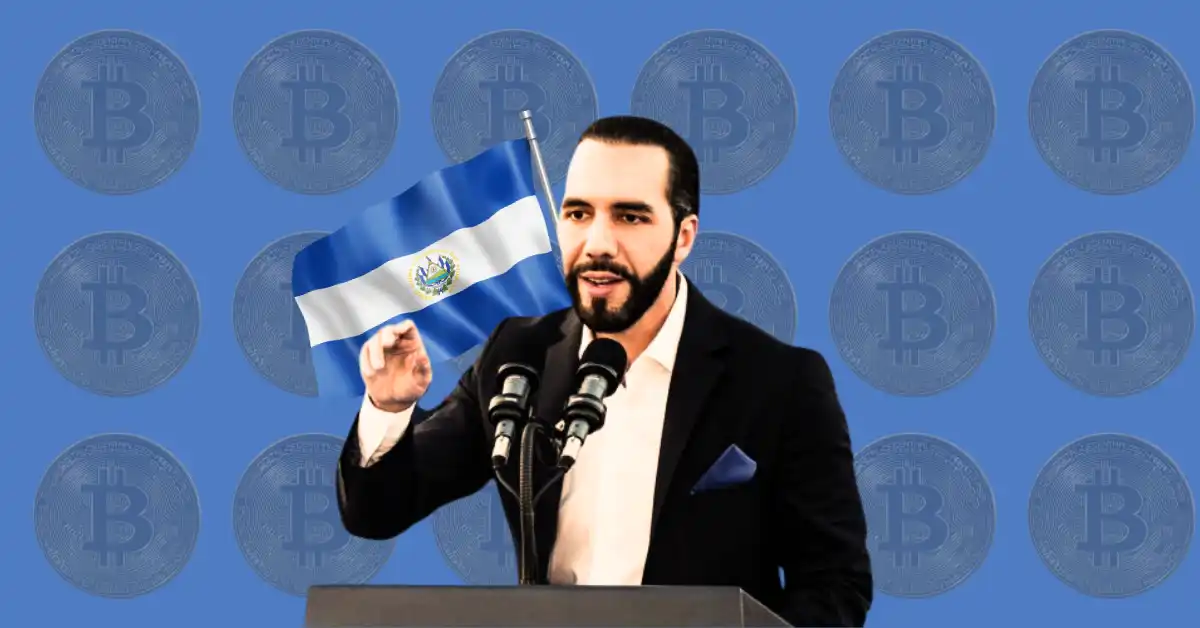
In a move that defies traditional financial expectations, El Salvador has once again made headlines with its latest Bitcoin acquisition. Despite an agreement with the International Monetary Fund (IMF) aiming to limit the country’s exposure to the volatile cryptocurrency market, El Salvador has boldly purchased at least eleven Bitcoin (BTC) tokens, amounting to nearly $1 million. This audacious step raises an intriguing question within the crypto community: What message is El Salvador conveying with its steadfast investment in Bitcoin?
El Salvador’s Latest Bitcoin Purchase: A Strategic Move
Recent reports reveal that El Salvador has added at least eleven Bitcoin tokens to its national reserve, further cementing its position as a pro-crypto nation. The purchase, estimated at around $1 million, reflects the country’s unwavering confidence in the potential of Bitcoin, even as its price hovers around $93,347.36 per token. Prior to this acquisition, El Salvador held approximately 6,011 BTC tokens. This latest purchase has increased the nation’s BTC holdings to nearly 6,022 tokens, valued at approximately $572 million. This strategic move underscores El Salvador’s commitment to the BTC market and its belief in the transformative power of cryptocurrency.
A Consistent Bitcoin Buying Strategy by El Salvador
El Salvador’s journey with Bitcoin has been marked by a consistent strategy of accumulation. Since February 2024, the country has steadily increased its BTC reserve. On February 29, 2024, El Salvador’s Bitcoin holdings were at 2,381 BTC. This figure saw a remarkable surge to 5,689.7 BTC by March 15 of the same year. By the end of 2022, the country’s reserves had further expanded to at least 6,002 BTC tokens. As of now, El Salvador boasts a reserve of about 6,022 BTC tokens. This steadfast approach demonstrates a long-term vision for integrating Bitcoin into the national economy, highlighting El Salvador’s role as a pioneer in the cryptocurrency space.
El Salvador’s Agreement with IMF: Navigating Bitcoin’s Role
El Salvador’s economic landscape is currently under significant strain, prompting the country to seek financial assistance from the IMF in the form of a $1.4 billion loan. This loan is crucial for stabilizing the embattled economy. However, the IMF has set forth several conditions that challenge El Salvador’s ambitious crypto initiatives. The country is also exploring additional avenues for financial support, approaching the World Bank, the Inter-American Development Bank, and other regional development banks, with a target of securing at least $3.5 billion in assistance.
Four Key Conditions of the IMF
The IMF’s acceptance of El Salvador’s loan application comes with four pivotal conditions, each posing a potential challenge to the country’s crypto strategy:
- Voluntary Bitcoin Acceptance: The IMF insists that Bitcoin acceptance must be voluntary for the private sector, ensuring businesses have the choice to opt-in.
- Closure of the Chivo Wallet: The IMF demands the shutdown of the Chivo wallet, the official Bitcoin and Dollar wallet provided by the El Salvador government, which offers users the ability to transact in BTC fee-free.
- Limiting Bitcoin Tax Payments: The continuation of allowing tax payments in Bitcoin is to be halted, according to the IMF’s stipulations.
- Reducing Public Sector BTC Engagement: The IMF calls for a decrease in the public sector’s involvement in BTC-related activities.
In conclusion, El Salvador’s persistent acquisition of Bitcoin underscores its dedication to the cryptocurrency, despite external pressures and conditions from global financial institutions. With its strategic reserves steadily growing, El Salvador’s economic approach represents a bold experiment on the world stage, challenging conventional financial norms and highlighting the potential of cryptocurrency as a tool for national economic development.






